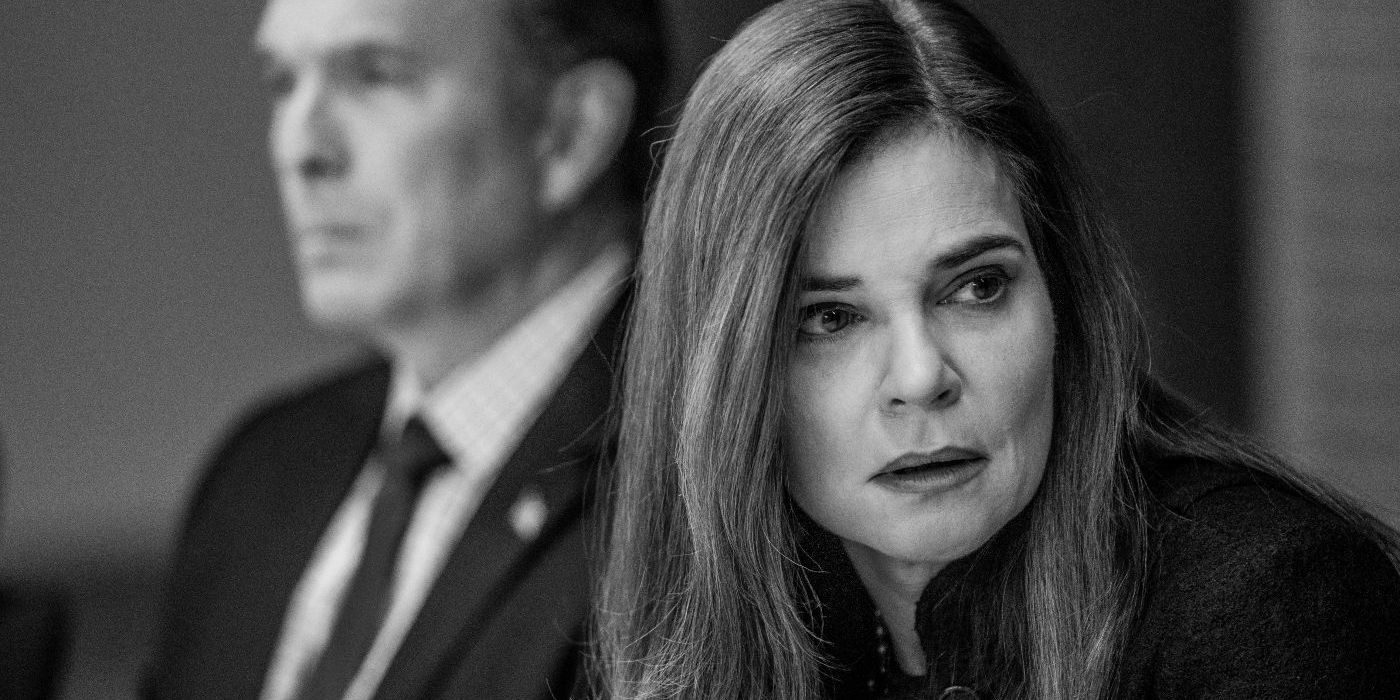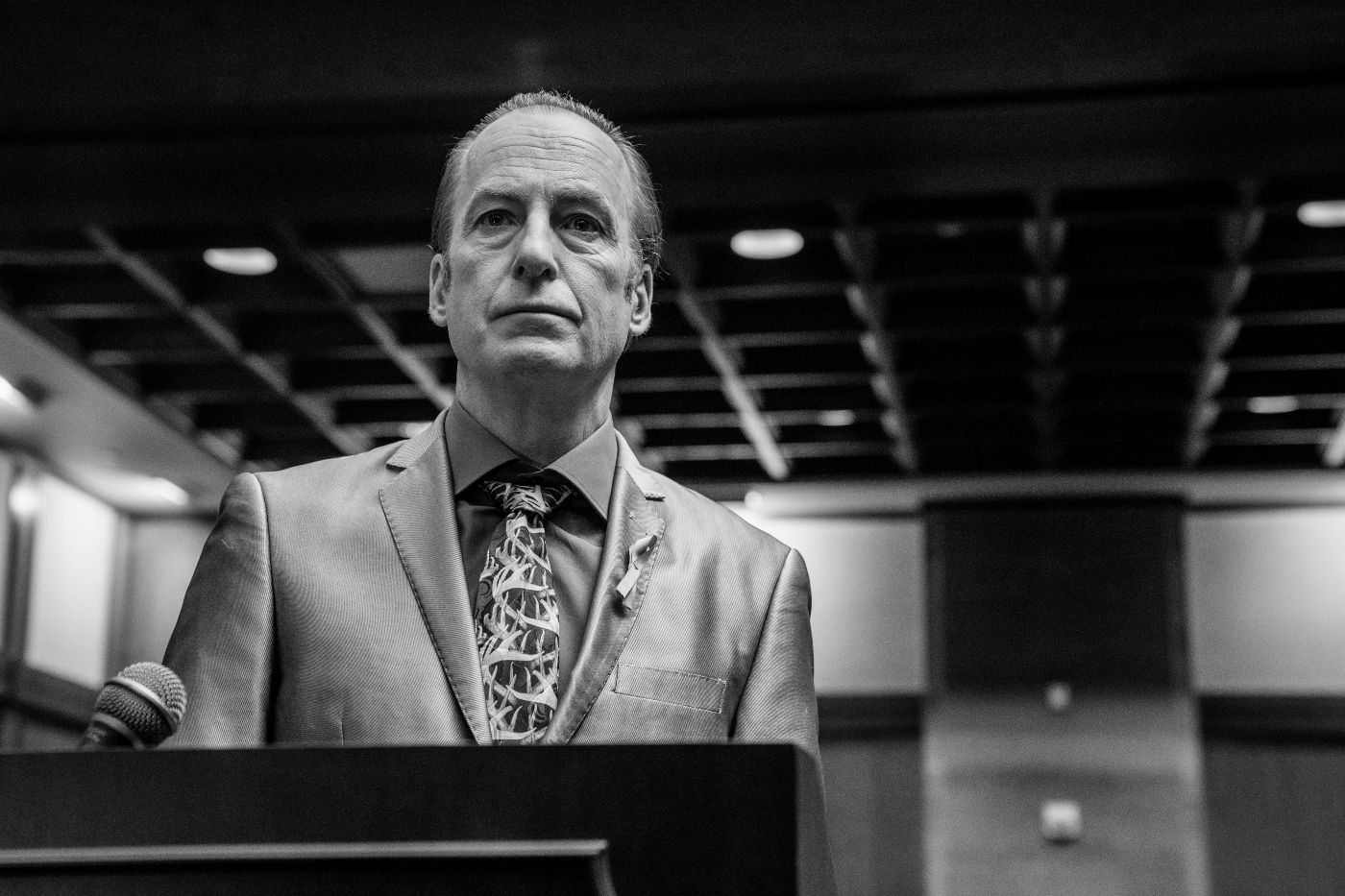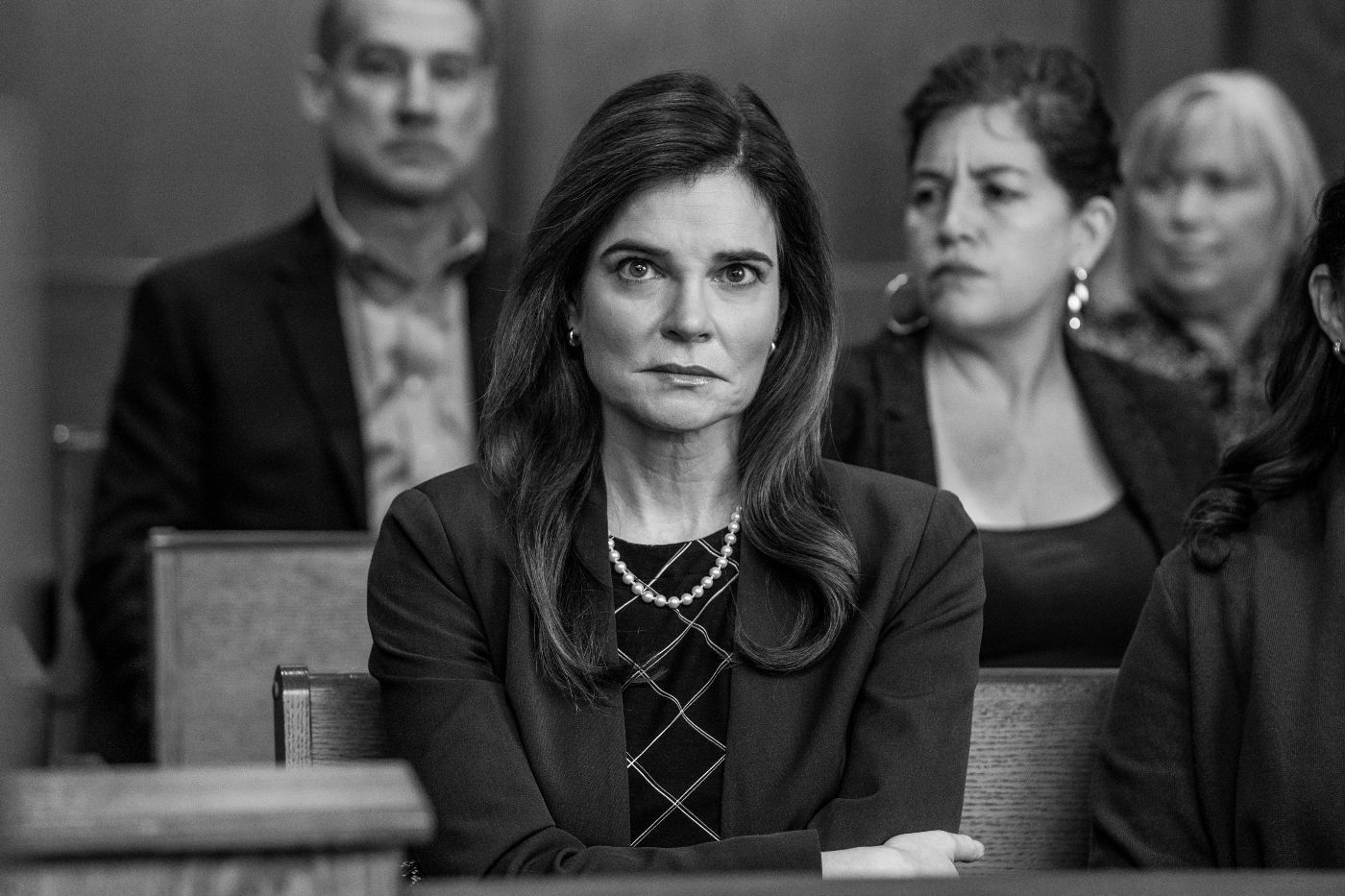After six explosive seasons of plotting, scheming, and icing Cinnabons incognito, Jimmy McGilll/Saul Goodman's (Bob Odenkirk) storyline finally came to a stunning conclusion in August with the series finale of Better Call Saul. One of three series in the critically acclaimed "Gilliverse," Vince Gilligan and Peter Gould's AMC drama wrapped up the mystery behind what became of Walter White's (Bryan Cranston) iconic criminal lawyer after the events of the Breaking Bad series finale in 2014.
The final episode of the series, "Saul Gone," welcomed back three Breaking Bad alums, including, of course, Cranston's Walt and Aaron Paul's Jesse Pinkman, both of whom made three cameos total in the show's sixth and final season, beginning with Episode 11, aptly titled "Breaking Bad." The most surprising finale cameo, however, came during Saul's plea negotiation with the return of Hank Schrader's (Dean Norris) wife, Marie (Betsy Brandt). Let's break down Mrs. Schrader's surprising return, starting with that outrageous plea deal.
Marie Is an Essential Ingredient to the State's Plan for Saul
After a team of state lawyers smugly break down Saul's plea deal – a generous 30 years, considering he should be looking at life plus 190 years – Saul, nonchalant as ever, suggests that they bring in Agent Schrader's widow. It's obvious that Saul hasn't filled in his clueless co-counsel William "Bill" Oakley (Peter Diseth), who insists that it's completely inappropriate for Marie to be present at a plea negotiation. Saul, however, insists. Clearly, Marie is an essential ingredient to whatever seedy plan he's cooked up to gain the upper hand in his plea deal.
Marie enters the room and takes a seat. In some ways, Hank's widow is a far cry from the neurotic, purple-obsessed woman we knew from Breaking Bad. Wearing neutral colors and maintaining a steely composure, Marie is grief-stricken but determined to face Saul Goodman– one of the few major players indirectly involved in Hank's death who is still alive. She sits down and finally gets to tell Saul exactly what she thinks of him after all these grief-ridden years, beginning with a moving tribute to Hank. "If somebody was in trouble – no matter the time, no matter the place," she says, "Hank Schrader would be there. With a smile and a joke. He was kind. He was decent. He was strong."
She also pays tribute to Steve Gomez (Steven Michael Quezada), Hank's partner, another beloved Breaking Bad character who got caught in Walter White's deadly crosshairs. Marie says that Steve and his wife Blanca, parents to three now fatherless children, "made a home that was warm and full of laughter" – a home that has now been destroyed after Hank and Steve were shot dead and left in a hole in the desert.
Marie's final words to Saul are a chilling reminder that at the end of the day, Saul Goodman is not a good person. "You helped the two-faced poisonous bastard behind it all," she says. "For what? Money. You did it all…for money. No matter what they do with you now, no matter where they put you or for how long, it will never be enough." Marie's words sting like a cold slap to the face because even though we all know that Saul Goodman is a conman with ethically and morally destitute methods, we also don't often view him truly as the "bad guy." It's Marie's return to the screen, her declaration that "Hank and Steve, the good guys" were brutally murdered, that reminds us that Saul Goodman is just as guilty as the men who pulled the trigger.
Marie has given Saul exactly the fuel he needs to deliver one of the phoniest, but most effective performances of a lifetime. He spins a tale about how he, too, is a victim, like Marie and Hank. He proclaims to Marie and the team of aghast lawyers, "Mrs. Schrader, you are looking at a man who has lost everything." With her arms crossed, Marie sits back in her seat in stunned disbelief. As always, Saul pulls out all the stops. He reminds them that all he needs is one juror to believe him. Marie looks over at the legal team, shock and realization dawning on her face. "You are not going to negotiate with this man. You are not." The next scene shows a distraught Marie walking down the hallway, exiting the building. And with that audacious performance, Saul has successfully used Marie Schrader to manipulate the legal system one last time, knocking his sentence down to a measly seven years.
Marie's Cameo Is the Most Surprising and Most Important in the 'Better Call Saul' Finale
Marie's presence in the plea negotiation is integral to showing Saul at his worst. To be so bold as to look Marie Schrader in the eye and claim victimhood without an ounce of sincerity is classic Saul Goodman, formerly Slippin' Jimmy, weaseling his way out of a seemingly impossible situation. He knows it's a load of bullshit, she knows it's a load of bullshit – the entire room knows it. But they also know that he is right: he just needs one single juror to believe his bullshit, and Saul Goodman will once again get away with it all.
Marie Schrader is a true victim who has yet to see anyone brought to justice for the death of her husband, Hank Schrader, a true good man: a hero who fell victim to the indirect crimes of Saul Goodman, a villain in an outrageous, colorful suit whom we love to excuse. Saul is a conman, a thief, and a criminal -- but Better Call Saul made him likable. Better Call Saul introduced us to Jimmy McGill, the man who came before the sleazy Saul Goodman. After spending six seasons with Jimmy, it was easy to forget that we are looking at a man who is just as guilty as Walter White.
At the end of the series finale, Saul (perhaps better known as James McGill now), may be on the path to redemption. But Marie's return was a damning reminder of who "Saul Goodman" really is, how far Jimmy has fallen, and who the real heroes of this story truly are.



